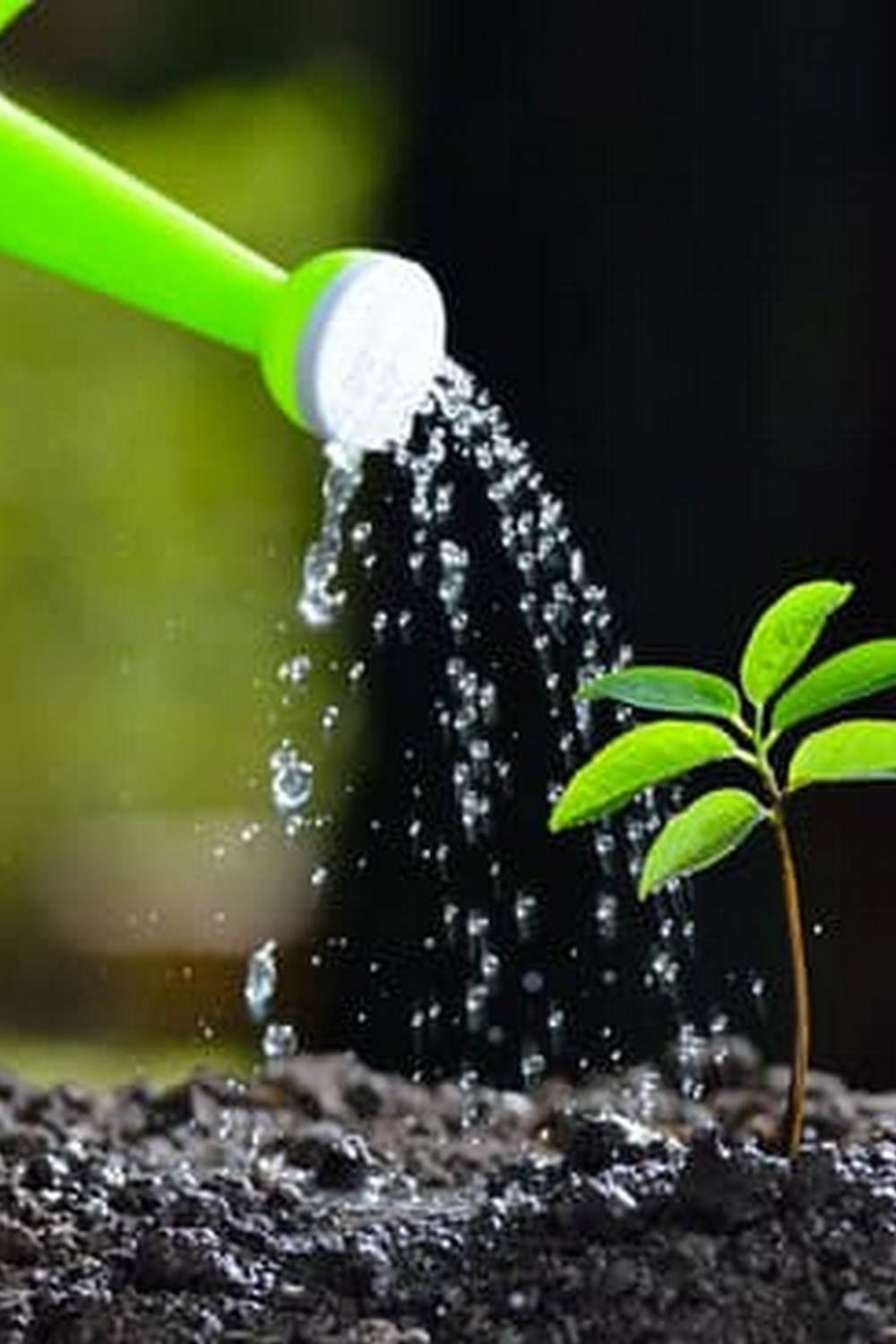Introduction
Having ants in your vegetable garden can be a tricky situation. On one hand, they are beneficial because they help to act as pest control, but on the other hand, their presence can potentially damage your produce and create a mess. When considering whether or not it is bad to have ants in your vegetable garden, there are pros and cons to consider.
Pros: As mentioned before, ants play an important role in pest control. They feed on insects such as caterpillars and aphids that can be detrimental to the health of your crops. In addition, they also aerate the soil along with other beneficial insects like earthworms allowing for better plant growth and health.
Cons: While there are some benefits associated with having ants in your vegetable garden, caution should be taken as they can also become pests themselves. Certain types of ants may feed on tender emerging seedlings or flower petals causing plants to wilt or die prematurely. They may also create a mess by building piles of dirt which could block nutrient pathways for plants or cause root damage by nesting near plant roots. This could lead to stunted growth and declining yields.
How to Identify Different Types of Ants in Your Garden
Ants are a common garden insect that can be beneficial to gardens, as they help aerate soil, recycle nutrients and remove dead insects. However, certain types of ants can be harmful to vegetable plants or bring unwanted company such as aphids. It is important to first identify your ant species before attempting to control it.
For the most part, common garden ants belong to one of three main genera: Lasius, Formica and Tapinoma. Lasius species are small and yellow in color with black antennae. They often make small mounds in disturbed soil that can be up to 8 inches wide at their peak height. Ants from this genus sometimes form “super colonies” with extensive underground networks. Formica species are larger with more of a reddish hue than their yellow cousins. They also produce modest mounds around 3-4 inches high in undisturbed ground, usually near the base of trees or other structures such as fences or sheds. Lastly, Tapinoma species are identified by medium-sized mounds about 4-5 inches tall and scattered dirt piles around them being slightly bigger in size than those made by Lasius ants which have finer granules due to fine grains digested by their larvae inside the mound. Additionally, some may notice winged reproductive ants during particular times of the year which is an indication for a mature nest belonging the family “Formicidae” once again confirming that is a common ant species found around gardens worldwide making it necessary to identify them properly before taking any drastic measures against their presence in your plot or yard.
Establishing Habitats for Beneficial Ants
Having ants in your vegetable garden can be beneficial instead of being bad, as many ants actually help with pest control. For example, they feed on aphids and mealybugs, protecting your vegetables from damage. To make sure that you are creating a home for beneficial species of ants, it is important to create bee-friendly ant habitats by planting flowers that produce nectar, create mulch circles and tunnels around the garden, provide water sources, and even build “ant hotels” out of pieces of wood filled with sticks and soil. As these beneficial species make a home in your garden beds, they will act as natural predators against other types of pests. Additionally, by introducing them into the environment you will create a balanced ecosystem in which every species plays an important role. All in all, having ants in your vegetable garden can be incredibly beneficial if you make sure to establish habitats for the right type of ants for the job!
Protecting Your Plants From Pests by Encouraging Ants
Having ants in your vegetable garden can be beneficial because they will help to protect your plants from other pests. Ants will eliminate aphid populations, deter larger animals such as lizards and rodents, and also act as a deterrent to larger insect pests like caterpillars. Additionally, ants aerate the soil which helps to increase soil fertility and plant health. They can also put nutrients into the soil that are beneficial for plants. The presence of ants in your vegetable garden promotes healthy symbiotic relationships between garden insects and plants, maintaining equilibrium among all types of pests. Furthermore, although there may be more nuisance than damage with certain species of ants, it’s important to remember that most ant species are harmless and won’t cause any real harm to your plants or vegetables. To encourage these helpful insects in your garden you should create habitats around the edges of the garden by providing water sources and piles of mulch. These areas provide shelter, food and nesting sites. In short, having ants in your vegetable garden is not necessarily bad – they can actually provide many benefits to your plants so it would definitely be advantageous to invite them into your vegetable patch!
Common Ways to Discourage Pest Invasions with Ants
Having ants in your vegetable garden can be a real nuisance, as they are most likely feeding on your precious vegetables! It is advised that you take preventative measures to discourage pest invasions with ants. One measure would be to keep your garden free of standing water; ants need water and will not leave an area where it is available. Additionally, use mulch around the perimeter of the garden to reduce ant access. Keep grass and weeds well trimmed, as this provides entry forants into the garden. Place a line of diatomaceous earth around the perimeter of the garden; this natural powder kills insects by drying them out but is harmless to pets or humans. Lastly, use bait traps or toxicants with boric acid to rid yourself of troublesome ants.
Signs of an Unhealthy or Overpopulated Ant Population
Having a few ants in your vegetable garden is not necessarily a bad thing. In fact, ants can help to aerate and fertilize the soil, enrich it with nutrients, and recycle organic material. However, if you start to see an excessive number of ants in your garden, it could be sign that there are issues in the surrounding environment.
One sign of an unhealthy or overpopulated ant population is abnormal amounts of ant hills present. If the residents of the hill are common species like pavement ants or harvester ants, there will likely be several small hills scattered throughout your garden. Risks associated with large numbers of ant hills can include physical damage to plants and trees due to mounds being built into their roots systems as well as attracting pest insects like termites and aphids which could cause severe infestations throughout your garden. Additionally, larger amounts of ant activity could also create soil compaction making it difficult for root systems to get access to necessary oxygen and nutrients for successful growth.
Commonly Used Non-Toxic Strategies for Removing Unwanted Ants
Having ants in a vegetable garden can be unwanted, but it is not necessarily bad. The presence of ants in a vegetable garden may actually help protect the plants from other insect pests by doing away with them or harvesting them for food. Ants can also improve soil aeration and fertility by creating small tunnels within the soil as they travel and feed.
If you decide to remove the ants from your vegetable garden non-toxic strategies are highly recommended. A few common non-toxic strategies include sprinkling diatomaceous earth on the soil surface, discouraging their presence with ant repellent plants like citronella grass and peppermint, planting ground covers like mulch or plastic around the edges of your garden to help stop movement across borders, drenching disturbed areas with white vinegar solution, or introducing natural predators birds and lizards into the garden environment.
Conclusion
Having ants in your vegetable garden can be a nuisance, especially when they spread to other areas of your house. If you find ants in your vegetable garden, it’s important to assess the level of infestation and how much it is affecting your vegetables. For instance, if the ants are eating away at vegetation or infiltrating near-by pathways, it may be time to take proactive measures.
There are various measures one can take in addressing an ant infestation in the garden: contact a professional pest specialist for advice; use products such as insecticidal soap and diatomaceous earth; opt for natural predators like spider repellent to target the species directly; or remove any nesting sites and food sources that could be attracting them.
It is also important to consider practical methods for keeping ants away from your garden in the future, such as clearing debris consistently, creating barriers between soil and plant stems with plastic or sandpaper collars, regularly washing plants with water solvents, filling individual pots with well-draining soil mix or potting mix, growing plants that attract natural predators (like ladybugs), or installing traps around perimeter walls.
Ultimately, deciding whether or not having ants in your vegetable garden is bad depends on their amount and behavior. Taking preventive steps such as understanding how these creatures operate and putting preventative measures into place will give you better insight into ensuring your vegetable garden remains free of pests while maintaining healthy crop yields.

If you’re looking to get into vegetable gardening, or are just looking for some tips on how to make your current garden better, then you’ve come to the right place! My name is Ethel and I have been gardening for years. In this blog, I’m going to share with you some of my best tips on how to create a successful vegetable garden.





